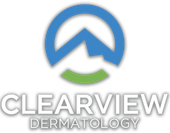Teen vs. Adult Acne: Causes and Treatments That Actually Work
Think acne was supposed to be a teenage problem that you'd leave behind with your high school yearbook? Well, join the club of confused adults everywhere who are still dealing with breakouts well into their 20s, 30s, and beyond. The truth is, acne doesn't always follow the rules we expect it to.
Whether you're a frustrated parent trying to help your teenager or an adult wondering why your skin is acting like you're 16 again, understanding the differences between teen and adult acne is the first step to finding treatments that actually work.
Key Points:
- Teen acne is primarily driven by hormonal surges during puberty, affecting 85% of teenagers
- Adult acne affects 25% of men and 50% of women in their 20s and 30s, often caused by hormones, stress, and lifestyle factors
- Teen acne typically appears in the T-zone (forehead, nose, chin), while adult acne favors the lower face and jawline
- Treatment approaches differ significantly between age groups due to varying causes and skin sensitivity
- Professional dermatological care is essential for both age groups to prevent scarring and achieve clear skin
- Adult acne often requires addressing underlying hormonal imbalances and lifestyle factors
The Acne Reality Check
Here's something that might surprise you: acne is the most common skin condition in the United States, affecting up to 50 million Americans annually. And it's not just a teenage thing—adult acne is on the rise, especially among women.
The frustrating part? What works for your teenager might not work for you, and vice versa. That's because teen and adult acne are like distant cousins—related, but with their own distinct personalities and quirks.
Teen Acne: The Hormonal Hurricane
What's Really Going On?
Teen acne is like a perfect storm brewing in your teenager's skin. During puberty, hormone levels go absolutely wild—specifically androgens like testosterone. These hormones tell the oil glands to work overtime, producing way more sebum (skin oil) than necessary.
Mix that excess oil with dead skin cells and bacteria, and you've got the classic acne recipe. It's not your teen's fault, and it's definitely not because they're "dirty" or eating too much chocolate (though we'll talk about diet later).
Where Teen Acne Loves to Show Up
Teen acne has favorite hangout spots:
- T-zone dominance: Forehead, nose, and chin get hit hardest
- Back and chest: Those oil glands are everywhere
- Shoulders: Especially common in athletic teens
Types of Teen Acne
Teen acne comes in several varieties:
- Blackheads and whiteheads: The classic comedones
- Inflammatory papules: Red, tender bumps
- Pustules: The white-headed pimples everyone knows
- Cystic acne: Deep, painful lumps that can cause scarring
What Makes Teen Acne Worse?
Several factors can turn teenage skin into a battlefield:
- Hormonal fluctuations: Especially around menstrual cycles for girls
- Sports and sweating: All that gear and sweat can clog pores
- Hair products: Heavy styling products can migrate to the forehead
- Stress: School, social pressure, and life changes all count
- Over-washing: Counterintuitively, this can make acne worse
Adult Acne: The Unexpected Guest
Why Is This Happening to Me?
Adult acne feels like a cruel joke, but it's actually quite common. About 25% of men and 50% of women in their 20s and 30s deal with acne, and it can persist or even start for the first time in your 40s and 50s.
Adult acne has different triggers than teen acne:
- Hormonal fluctuations: Menstrual cycles, pregnancy, menopause
- Stress: Work, relationships, life pressures
- Skincare products: Sometimes our "anti-aging" routines backfire
- Medications: Certain drugs can trigger breakouts
- Underlying health conditions: PCOS, thyroid issues, and others
Where Adult Acne Prefers to Appear
Adult acne has its own preferred real estate:
- Lower face: Jawline, chin, and around the mouth
- Neck: Especially along the jawline
- Chest and back: Though less common than in teens
This distribution pattern is often called "hormonal acne" because it follows the areas where hormonal fluctuations have the most impact.
Types of Adult Acne
Adult acne tends to be:
- More inflammatory: Red, angry-looking bumps
- Deeper: Cystic lesions that take forever to heal
- More persistent: Individual pimples that stick around for weeks
- More likely to cause scarring: Adult skin doesn't bounce back as quickly
The Big Differences: Teen vs. Adult Acne
Cause and Effect
- Teen acne: Primarily hormonal surges from puberty
- Adult acne: Complex mix of hormones, stress, lifestyle, and products
Location, Location, Location
- Teen acne: T-zone territory (forehead, nose, chin)
- Adult acne: Lower face and jawline domination
Healing Time
- Teen acne: Generally heals faster (youth has its perks)
- Adult acne: Takes longer to heal and more likely to scar
Skin Sensitivity
- Teen skin: Usually more resilient to aggressive treatments
- Adult skin: Often more sensitive and reactive
Psychological Impact
- Teen acne: Can affect self-esteem during crucial developmental years
- Adult acne: Often more frustrating because it's "not supposed to happen"
Treatment Approaches: What Actually Works
Teen Acne Treatments
Starting Simple:
- Gentle cleansing twice daily with salicylic acid or benzoyl peroxide
- Oil-free, non-comedogenic moisturizers
- Consistent routine (this is key for teenagers!)
Stepping It Up:
- Topical retinoids (adapalene is available over-the-counter)
- Prescription antibiotics for inflammatory acne
- Combination therapies prescribed by our providers
For Severe Cases:
- Isotretinoin (Accutane) for cystic acne
- Hormonal treatments for teenage girls (birth control pills)
- Professional extractions and chemical peels
Adult Acne Treatments
The Gentle Approach:
- Mild cleansers (adult skin is often more sensitive)
- Targeted spot treatments
- Non-comedogenic skincare and makeup
Addressing the Root Cause:
- Hormonal treatments: Spironolactone, birth control pills
- Topical retinoids: Tretinoin, adapalene, or tazarotene
- Professional treatments: Chemical peels, laser therapy
Advanced Options:
- Isotretinoin: For severe adult acne
- Light therapy: LED treatments can reduce inflammation
- Hormonal evaluation: Checking for underlying conditions like PCOS
Lifestyle Factors That Make a Difference
Diet: The Great Debate
While chocolate doesn't directly cause acne, some foods might trigger breakouts:
- High-glycemic foods: White bread, sugary snacks, processed foods
- Dairy products: Some people notice improvement when they reduce dairy
- Individual triggers: Everyone's different, so pay attention to patterns
Stress Management
Stress is a major acne trigger for both teens and adults:
- For teens: School stress, social pressure, family issues
- For adults: Work pressure, financial stress, relationship issues
Managing stress through exercise, sleep, and relaxation techniques can significantly improve skin.
Skincare Habits That Help
For Everyone:
- Gentle cleansing (over-washing makes things worse)
- Consistent routine
- Sun protection (some acne treatments increase sun sensitivity)
- Clean pillowcases and phone screens regularly
For Teens:
- Remove makeup completely before bed
- Shower after sports and activities
- Avoid touching the face
For Adults:
- Be cautious with anti-aging products (some can clog pores)
- Remove makeup thoroughly
- Consider how hair products might affect your skin
Common Mistakes to Avoid
The Over-Cleansing Trap
More isn't always better. Washing your face too often or with harsh scrubs can irritate skin and actually make acne worse.
The Spot Treatment Obsession
While it's tempting to attack each pimple individually, treating your entire acne-prone area prevents new breakouts.
The Impatience Problem
Most acne treatments take 6-12 weeks to show significant improvement. Switching products every few weeks won't give anything a chance to work.
The DIY Disaster
Pinterest and TikTok are full of DIY acne "cures" that can seriously damage your skin. Stick to proven treatments.
When to See a Dermatologist
Don't wait until acne becomes severe to seek professional help. Consider seeing our providers at Clearview Dermatology if:
- Over-the-counter treatments aren't helping after 6-8 weeks
- You're developing cysts or nodules
- Acne is leaving scars
- It's affecting your self-confidence or mental health
- You're an adult experiencing acne for the first time
- You suspect your acne might be related to hormonal issues
The Clearview Dermatology Approach
Our providers understand that acne isn't one-size-fits-all. Whether you're dealing with stubborn teenage breakouts or unexpected adult acne, we create personalized treatment plans that address your specific needs, skin type, and lifestyle.
Our approach includes:
- Thorough evaluation of your acne type and triggers
- Customized treatment plans for your age and skin sensitivity
- Education about proper skincare routines
- Ongoing support and treatment adjustments
- Advanced treatment options when needed
Your Clear Skin Journey Starts Here
Acne might be common, but that doesn't mean you have to live with it. Whether you're 15 or 50, there are effective treatments available that can help you achieve clearer, healthier skin.
The key is understanding that teen and adult acne are different beasts that require different approaches. What worked for your teenage years might not work now, and that's perfectly normal.
Ready to tackle your acne once and for all? Contact Clearview Dermatology today:
- Candelas Location: 720-797-9184 | 14789 W. 87th Parkway, Arvada, CO 80005
- Bergen Park Location: 720-694-8550 | 32135 Castle Court, Ste 202 Evergreen, CO 80439
- Dakota Ridge Location: 720-909-8154 | 13402 W Coal Mine Ave, Ste 360 Littleton, CO 80127
Visit us at
www.clearviewdermatology.com to learn more about our acne treatment options and
schedule your consultation.
FAQs About Teen vs. Adult Acne
Why did my acne come back in my 30s if I never had it as a teenager?
Adult-onset acne is actually quite common, especially in women. Hormonal changes from pregnancy, menopause, stress, or underlying conditions like PCOS can trigger acne even if you had clear skin as a teenager.
Can the same products work for both teen and adult acne?
While some ingredients like salicylic acid and benzoyl peroxide work for both age groups, adults often need gentler formulations and may require different active ingredients like retinoids or hormonal treatments.
Is cystic acne more common in teens or adults?
Cystic acne can occur at any age, but it's often more persistent and harder to treat in adults. Teen cystic acne may resolve with age, while adult cystic acne often requires professional treatment.
How long should I wait to see results from acne treatment?
Most treatments take 6-12 weeks to show significant improvement. It's important to be patient and consistent with your routine, as switching products too frequently can irritate your skin.
Can hormonal birth control help with adult acne?
Yes, certain birth control pills can be very effective for adult hormonal acne, especially when breakouts occur around menstrual cycles. However, this should be discussed with both your dermatologist and gynecologist.
Why does adult acne seem to leave more scars than teen acne?
Adult skin heals more slowly than teenage skin, and adult acne tends to be deeper and more inflammatory, making scarring more likely. This is why early treatment is so important.
Can stress really cause acne breakouts?
Absolutely! Stress increases cortisol levels, which can stimulate oil production and inflammation. Both teens and adults often notice breakouts during high-stress periods like exams, work deadlines, or major life changes.
Is it normal for acne to get worse before it gets better with treatment?
Some treatments, particularly retinoids, can cause an initial "purging" period where acne temporarily worsens as the skin adjusts. This usually lasts 4-6 weeks, but you should discuss any concerns with your dermatologist.
Can diet changes really help clear up acne?
While diet isn't the primary cause of acne, some people notice improvements when they reduce high-glycemic foods and dairy. The relationship between diet and acne varies greatly between individuals.
Should teenagers use the same anti-aging products as adults?
No, teenagers typically don't need anti-aging products and some can actually make acne worse. Teen skincare should focus on gentle cleansing, oil control, and acne treatment rather than anti-aging concerns.
FAQs About Clearview Dermatology
Do our providers specialize in treating acne?
Yes, our providers have extensive experience treating acne in patients of all ages. He understands the unique challenges of both teen and adult acne and creates personalized treatment plans for each patient.
What acne treatments are available at Clearview Dermatology?
We offer a full range of acne treatments including topical medications, oral antibiotics, hormonal therapies, isotretinoin, chemical peels, laser treatments, and professional extractions.
Do you treat both teens and adults for acne?
Absolutely! We welcome patients of all ages and understand that acne treatment needs vary significantly between teenagers and adults. Our approach is tailored to each patient's age, skin type, and lifestyle.
How much do acne treatments cost?
Treatment costs vary depending on the type and extent of treatment needed. Many treatments are covered by insurance. We recommend calling to discuss pricing and insurance coverage for your specific situation.
Can parents accompany teenagers to acne consultations?
Yes, we encourage parental involvement in teenage acne treatment. Parents can help ensure treatment compliance and provide support throughout the process.
How often will I need follow-up appointments for acne treatment?
Follow-up frequency depends on your treatment plan. Initially, we might see you every 4-6 weeks to monitor progress and adjust treatments. Once your acne is under control, visits may be less frequent.
Do you offer payment plans for acne treatments?
We understand that acne treatment can be an investment in your confidence and health. Please contact our office to discuss payment options and insurance coverage for your specific treatment plan.
What should I expect during my first acne consultation?
During your initial visit, our providers will examine your skin, discuss your acne history, review any previous treatments, and create a personalized treatment plan. We'll also provide education about proper skincare routines and lifestyle factors that can help.
Disclaimer: The information provided on this blog is for general informational purposes only and is not intended as, and should not be considered, medical advice. All information, content, and material available on this blog are for general informational purposes only. Readers are advised to consult with a qualified healthcare professional for medical advice, diagnosis, or treatment. The author and the blog disclaim any liability for the decisions you make based on the information provided. Always seek the advice of your physician or other qualified health provider with any questions you may have regarding a medical condition.





